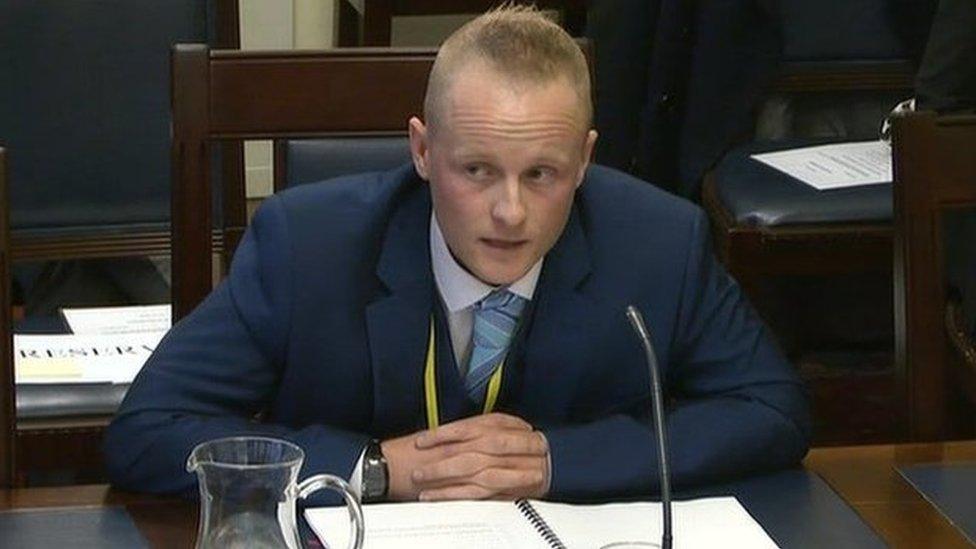Stormont 'could be down for five years', says Eastwood
- Published
- comments
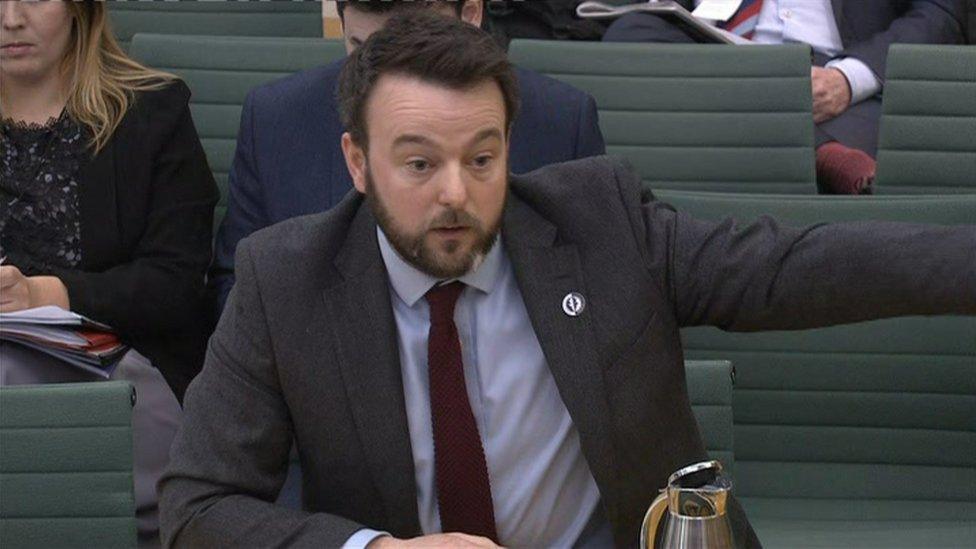
Colum Eastwood repeatedly clashed with DUP MPs while giving evidence to the Northern Ireland Affairs Committee
The Stormont institutions could be down for five years "if we keep doing what we're doing", the leader of the SDLP has warned.
Colum Eastwood also said nationalists were beginning to move away from the notion of devolved government.
Northern Ireland has been without an executive for 13 months.Power-sharing talks collapsed last week.
Mr Eastwood repeatedly clashed with DUP MPs while giving evidence to a Westminster committee on Wednesday.
Meanwhile, Labour MP Kate Hoey suggested that people who have expressed scepticism about the Good Friday Agreeement are treated as if they have said they "want to kill all babies at birth".
In the last few days a number of Brexit supporters have suggested that the 1998 agreement may no longer be fit for purpose.
"I've seen it myself in the last day or two when I've said something about, maybe the Belfast Agreement could be refreshed and we could look at ways of, as if you're sort of, you know, I don't know, saying you want to kill all babies at birth or something," she said.
'Never, never, never'
The DUP and Sinn Féin have disagreed on whether or not a deal was on the table before talks collapsed.
Broadcaster Eamonn Mallie has published 13 pages of a draft document on his website, external.
Sinn Féin said it included an Irish language act, an Ulster Scots act, and respecting language and diversity act.
The DUP said the published papers did not "undermine anything" it had said.
Mr Eastwood made comments about devolution during a meeting of the Northern Ireland Affairs Committee.
In one exchange with Strangford MP Jim Shannon, he said: "Everybody tells me that your party signed up to an Irish Language Act but it's for you to answer and it's for you to answer the people of Northern Ireland as to why we don't have a government. You and Sinn Féin.
Mr Shannon replied: "For the record Mr Chairman, we in the DUP did not agree to an Irish Language Act.
"Our party is very clear on that and for fear of any thoughts otherwise.
I just want to put it on the record never, never, never, to use the words that were used yesterday in parliament."
Mr Eastwood said: "I've heard 'never, never, never' before.
"And those things disappear like snow off a ditch when it's time to do government.
"In my view, from the people I have spoken to, and the papers I have read, you did agree to an Irish Language Act.
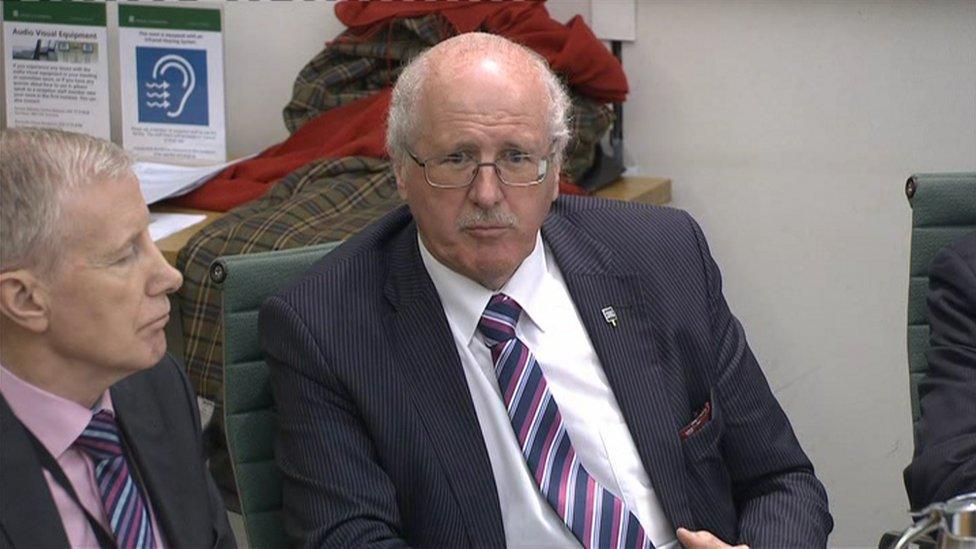
Jim Shannon said the DUP had not agreed to an Irish Language Act
"I know poor Mr Campbell (DUP MP Gregory Campbell) has had to go out and bat for that position for the past week and rarely do I feel sorry for Mr Campbell, but he's had a tough job over the last week defending that position."
The Foyle MLA repeated calls for a British Irish Inter-Governmental Conference to be reconvened with the British and Irish Governments putting their best guess of what a deal should be on the table.
"It needs to happen urgently, because we have found in the last 13 months our institutions are very easy to pull down and not that easy to put back together again," he said.
"Most people in this room remember the five years where we didn't have a government. I think we would be lucky to get these institutions back in five years.
"It is time for an intervention and the two governments have the responsibility to do that."
'Moral stain'
The leader of the Alliance Party, Naomi Long, pulled out of the hearing in protest at the decision to also invite the loyalist blogger Jamie Bryson to give evidence.
Mr Bryson was a prominent campaigner during the union flag protests, which began in December 2012.
At one point, Mr Bryson was asked by Labour MP John Grogan: "You're on the fringe of Northern Ireland politics. Could you remind me - I think you've had some electoral adventures - what's the most votes that you've got?"
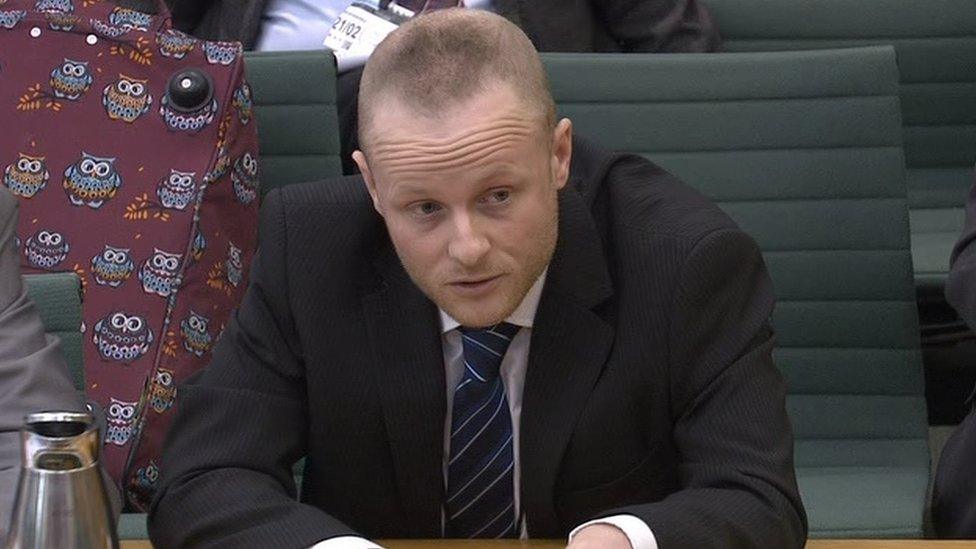
Jamie Bryson gave evidence to the Northern Ireland Affairs Committee
Mr Bryson replied: "I did stand for election before but to be clear... in 2011 when I think I was 21 it was 167 (votes) in a local council election.
"The quota was about 350. I'm not sure how that's relevant to Unionist Voice Policies Studies which I'm here to represent.
"As you say, my view on Northern Ireland politics and the people I represent may not be a majority view but it is a view of a considerable amount of people within the unionist community who have felt left behind by the political process and all people like to engage in the political process.
"So I don't think it's fair to insinuate that because somebody does not have majority support behind them they cannot engage in the process."
During his evidence, Mr Bryson said the Belfast Agreement was a surrender to the violence of the IRA and a "moral stain" on the British parliament .
- Published21 February 2018
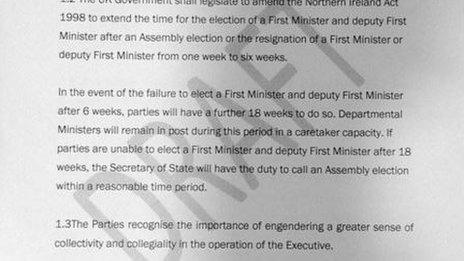
- Published28 June 2017
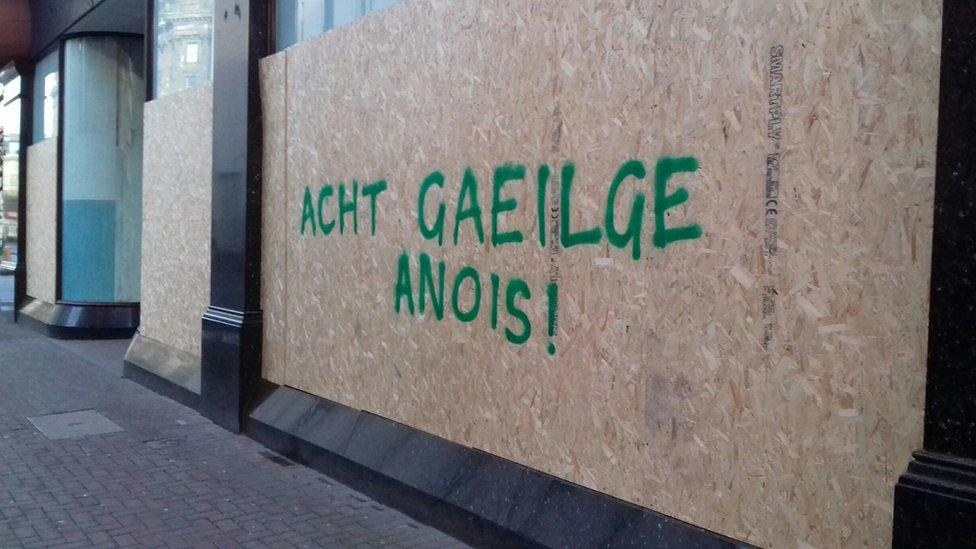
- Published5 February 2018
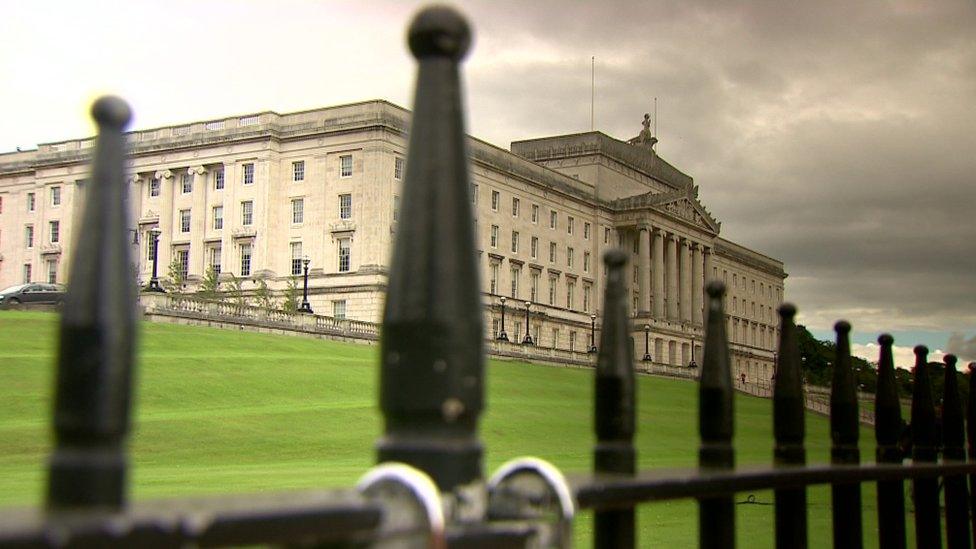
- Published26 June 2017
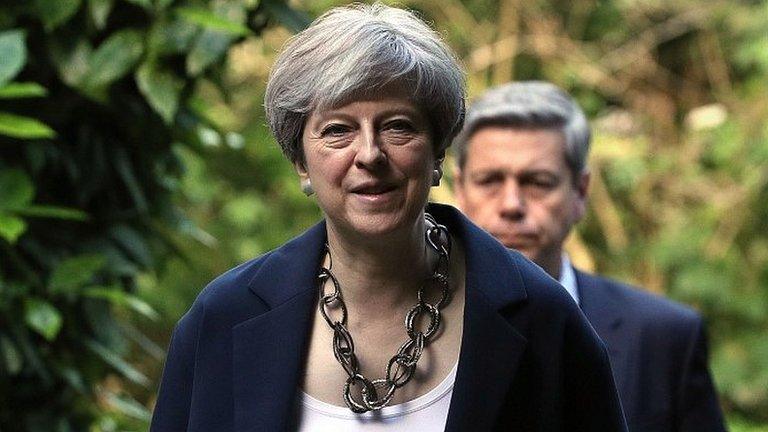
- Published16 February 2018
